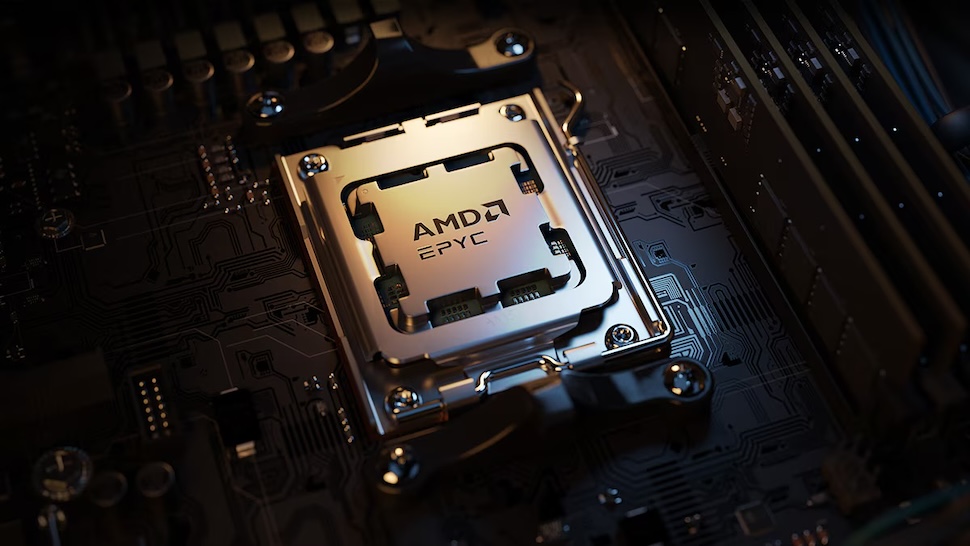
AMD has introduced its latest-generation EPYC 4004 Series processors, which it hopes will unlock power and cost efficiency for small and medium-sized businesses as well as hosted IT service providers.
The chips make use of the company’s Zen 4 architecture, introduced in 2022, to offer the enterprise-class features and performance that tech-centric businesses require.
Testament to the EPYC 4004 Series’ affordability is AMD’s claim that the 4564P processor delivers a 1.8x increase in performance per dollar compared with its key rival from Intel, the Xeon E-2488.
AMD EPYC 4004 Series
AMD says its 4004 Series processors will deliver dependability, scalability and modern security features, making them ideal for single-socket packages, rack scale, multi-node and tower configurations.
“Based on the same technologies that power the most demanding data centers in the world, the AMD EPYC 4004 Series processors are offered at an optimized acquisition cost for customers in small and medium-sized businesses seeking to drive better business outcomes," noted John Morris, Corporate VP for Enterprise and HPC Business Group at AMD.
The launch of the EPYC 4004 Series has already been approved by many industry leaders, including Lenovo, OVHcloud, and Supermicro.
Eight chips will fall under the 4004 Series umbrella with between four and 16 cores and 16-128MB of L3 cache. Processor speeds will range from 3.7-4.5GHz base, peaking at 5.1-5.7GHz under boost.
Those concerned about efficiency may also wish to consider the thermal design power of 65-170W.
Now available through partners including Altos, ASRock Rack, Gigabyte, Lenovo, MSI, New Egg, OVHcloud, Supermicro and Tyan, expect to fork out between $149 and $699 for the EPYC 4564P, 4464P, 4364P, 4344P, 4244P, 4124P, 4584PX and 4484PX chips.
More from TechRadar Pro
- In need of an upgrade? These are the best business laptops and best mobile workstations
- AMD’s next-gen Zen 5 CPUs could launch seriously soon going by a new rumor
- Check out our roundup of the best processors from AMD and Intel







